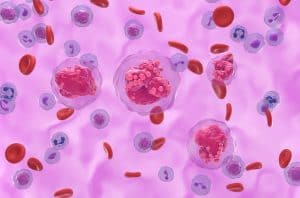NICE makes end-of-life drugs more available
pharmafile | January 6, 2009 | News story | Sales and Marketing | NICE, par
High-cost drugs that extend the lives of terminally ill patients will be more readily approved for NHS use, thanks to a change of approach from NICE.
The body has altered its appraisal process to make more end-of-life drugs available by extending the threshold at which they are considered cost-effective for the health service.
Patient groups have welcomed the decision, which MacMillan cancer support estimates could benefit as many as 10,000 patients a year.
The criteria
NICE's new appraisal method will only apply for medicines whose cost effectiveness ratio exceeds the usual £30,000 per quality adjusted life years (QALY). They will also have to fit the following criteria:
* Be indicated for patients with a short life expectancy, normally less than 24 months
* Have sufficient evidence to show they offer an extension to life, normally of at least three months, compared to current NHS treatment
* No alternative treatment with comparable benefits can be available on the NHS
* Be licensed, or otherwise indicated, for small patient populations of less than 7,000
If treatments meet these criteria NICE will give greater weight to the QALYs they achieve in the later stages of terminal diseases, which is expected to see them made more widely available.
The impact
The announcement follows a five-week public consultation from NICE and will apply to all on-going appraisals, but NICE won't make the new guidance retrospective.
The Institute said that to conduct a "systematic retrospective review" of previous decisions affected by the new policy would have "considerable resource implications".
The first drugs that could benefit from the new guidance are Avastin, Torisel, Sutent and Nexavar.
The four kidney cancer drugs were preliminarily rejected for NHS use last summer after NICE said the limited clinical improvement shown did not warrant their high cost – a decision that caused huge controversy among patients and the public.
The appraisal is still under consultation and a final decision is expected later this year.
Related Content

NICE recommends migraine treatment for NHS use
The National Institute for Health and Care Excellence (NICE) has shared draft guidance recommending AbbVie’s …

GSK’s Jemperli recommended by NICE for endometrial cancer treatment
GSK has announced that the National Institute for Health and Care Excellence (NICE) has recommended …

NICE recommends SC treatment of AbbVie’s Tepkinly for patients with DLBCL
AbbVie has announced that the National Institute for Health and Care Excellence (NICE) has recommended …








